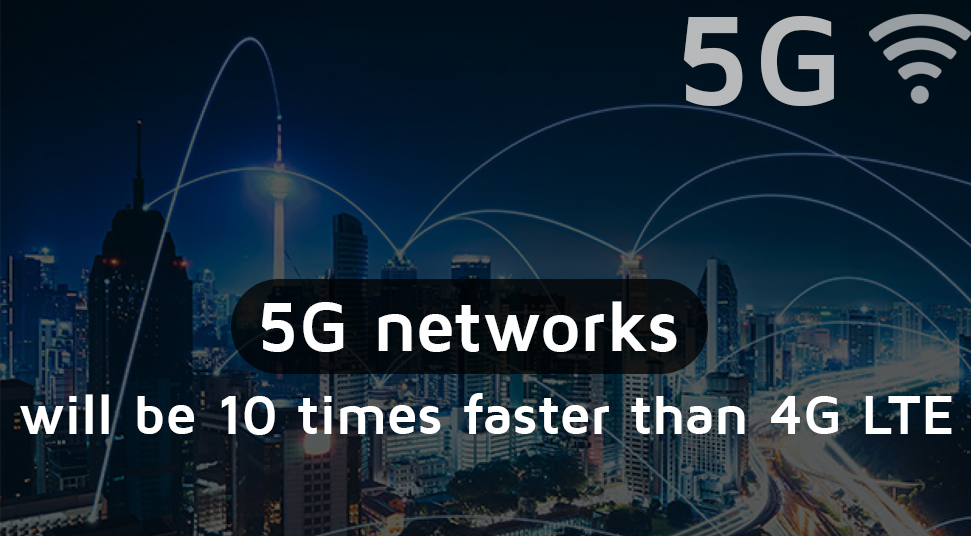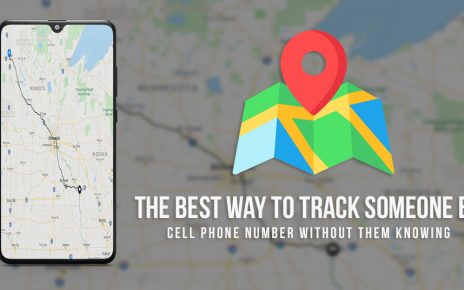The arrival of the 5th generation communication would definitely be a milestone for this generation and it is because it will be the fastest network on earth now. 5g increases possibilities of future enhancing technologies that would create more opportunities for us and help us in our daily lives from the automation of cars to telemedicine, from incredible internet speed to smart homes, from experiencing Virtual reality to the advancement of AI to boost business operations all over the world.
5G networks will definitely be ten-time faster that the 4th generation LTE (Long Term Evolution), but should we get too excited?
It is an obvious factor, that 5g is going to have a massive impact on our lives, but how.
Michelle Yan from Tech Insider speaks up on the emergence of 5g
He states, “ 5th generation networks will be 10 times faster than that of 4G LTE, but we shouldn’t get too excited yet.
Let’s see what is running on his mind about the arrival and impact of 5g on our lives and what else he is going to come up with.
What was the conversation between Michelle Yan and Antonio Villas
Well, Michele Yan stated: 5G is coming soon. He says that technically 5g is almost here but he adds Kinda? Maybe and Slowly? after the line. He said, that the 5G cellular network is 10 times faster than 4G LTE, which simplifies the understanding that, if a movie or video takes 5 minutes on Netflix to download, 5G will not take more than 30-40 seconds to do the same job.
The new standard of communication means devices can interact with each other with any lag. 5G can just reduce the time that we waste now with no waiting for anything. And this could create huge possibilities for stuff like experiencing wireless virtual reality, the advancement, and proliferation of automated cars (driverless), integrating smart homes and faster processing and download speed. He adds it is an exciting time for faster and more connected IoT devices but before having a seamless 5G experience, there are some obstacles that 5G needs to overcome.
Michelle Yan and Antonio Villas talking about overcoming the 5g obstacles
He said, that we are going to need a whole new infrastructure. Firstly, all your cellphone manufacturers will have to put in a few more essential equipment to match up with the new network, because 5G will use an entirely different wavelength if compared to the 4G uses.
The 5th generation will use millimeter waves, which are shorter than the wavelengths that 4G functions on. It becomes obvious that shorter wavelength can carry a lot of data much faster than 4G wavelengths, but it also means a much shorter range.
4G wavelengths usually have a range of 10 miles whereas, 5G is going to have wavelengths of only 1,000 feet which don’t match up the 10 miles range of 4G. To ensure reliable signal and availability, there has to be enough no of cell towers and antennas everywhere. This implies that it has to be connected through every lamppost, traffic light available because trees could also block signals of 5G.
Let’s hear what Antonio Villas-Boas from Business Insider has to say about the 5th generation cellular network.
Antonio Villas-Boas: He states that 5G is not going to be cheap at all. All the nodes or mini cell tower needs to be connected through fiber-optic cables and it is still undertaking and it is of course not in millions. He adds it will definitely cross billions, possibly a hundred of billions of dollars.
Michelle Yan: He further acknowledged, that it will not only cost billions of dollars by there has been pushback from many local communities.
Antonio replies: One of the biggest problems they have to run into is actually local governments and local communities who really don’t want these carriers (companies) to install towers all over the place. Or it could also be, they fear health risks which is definitely a big concern for everybody.
In response, Michelle says: There are many who are seriously worried that 5G radiation may cause cancer. The Federal Communications Commission (FCC) so far didn’t really mention or show any problems with 5G radiation, but they said before 5G comes into use, they will do more researches. Despite everything, Verizon has already introduced its 5G network in the area near Chicago and Minneapolis.
AT & T has 19 cities with 5G potential currently and on the other hand Sprint and T-Mobile said they are going to roll out their 5G network in 2019.
The problem with 5G if it rolls out, rural areas will be harder to cover since 5G has a short-range. Even if your service provider efficiently does all the hard work, you will still need devices that will support 5G. So far, we have only come around a few companies that can do that.
Antonio says: The only smartphones in the US that we know about is Motorola Z3 who supports 5G if you buy the extra Moto mod. Then Samsung Galaxy S10(5G) and the LG V50 ThinQ is also there trying to parallel Moto Z3.
Michelle: You can expect 5G phones to cost you more or less $200 to $300 more than the phones without 5G.Verizon and Starry are taking advantage of an early start in bringing 5G to your home internet.
Antonio lastly adds: He is really thrilled about 5G which is said to be a super open highway with many more lanes than the 4G LTE highway. It can cause a lot of congestion even during peak hours. He comes with an estimate that on the run, even 5G will get congestion with the number of people connecting to it and also the extra things that are going to be used for 5G. And maybe at that point, we are going to have to step over 6G.
Michelle ends the conversation with his last statement: So, while all the carriers already starting to show off their 5G capabilities, don’t get too excited because it’s still going to be a few years before you can really take advantage of the new technology.
Conclusion :
We have come to the end of the article after observing the conversation between both Michelle and Antonio and what is their take on the drawbacks and advantages of the 5th generation network.



